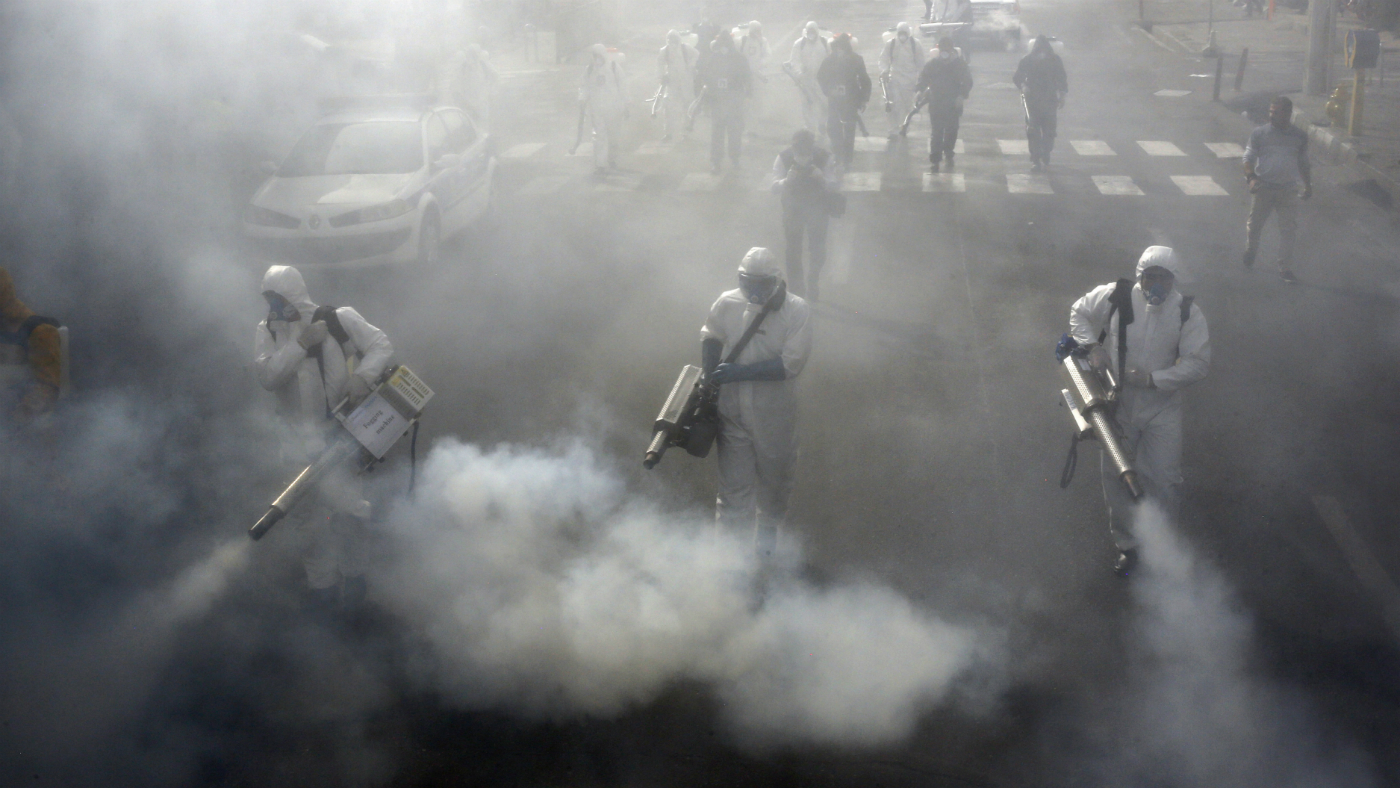Why Iran has freed 85,000 prisoners to combat coronavirus
UN urged Tehran to release inmates, but jail conditions prompt concern that the move has come too late

A free daily email with the biggest news stories of the day – and the best features from TheWeek.com
You are now subscribed
Your newsletter sign-up was successful
Iran has temporarily freed around 85,000 prisoners, including political prisoners, as part of a drastic response to combat the spread of the new coronavirus.
According to Reuters, the UN Special Rapporteur on human rights in Iran, Javaid Rehman, said on 10 March that he had asked Tehran to free all political prisoners temporarily from its “overcrowded and disease-ridden jails”, with Iranian judiciary spokesman Gholamhossein Esmaili confirming the decision this week.
During the announcement, Esmaili stated that “some 50% of those released are security-related prisoners”, a term that Iran uses to describe political prisoners, says Patrick Wintour at The Guardian.
The Week
Escape your echo chamber. Get the facts behind the news, plus analysis from multiple perspectives.

Sign up for The Week's Free Newsletters
From our morning news briefing to a weekly Good News Newsletter, get the best of The Week delivered directly to your inbox.
From our morning news briefing to a weekly Good News Newsletter, get the best of The Week delivered directly to your inbox.
“Also in the jails we have taken precautionary measures to confront the outbreak,” Esmaili added.
Iran has been one of the hardest-hit nations so far, with its death toll from the coronavirus reaching 988 from a total of 16,169 cases so far. Only China and Italy have recorded more cases and fatalities.
–––––––––––––––––––––––––––––––For a round-up of the most important stories from around the world – and a concise, refreshing and balanced take on the week’s news agenda – try The Week magazine. Get your first six issues for £6–––––––––––––––––––––––––––––––
The Daily Mail notes that Esmaili did not elaborate on when those released would have to return to prison, nor did Iran clarify which prisoners had been released.
A free daily email with the biggest news stories of the day – and the best features from TheWeek.com
“In a February report, Rehman described how overcrowded and unhygienic conditions were causing the spread of infectious diseases such as tuberculosis and hepatitis C. Quoting inmates, he said prisoners even had to provide their own soap,” says Reuters.
Human Rights Watch said last Wednesday that it had received reports that prisoners in Iran had tested positive for coronavirus, prompting fears that the entire system may be at risk. And one British-Iranian political prisoner being held in Tehran on spying charges last month sent a recorded message saying that the jail he is in was in “chaos”, The Guardian reports. He was reportedly transferred three days earlier within Iran’s notorious Evin prison to ward four – one of the wards he claims housed coronavirus victims previously.
ITV News reports that one high-profile prisoner to be released under Iran’s new strategy is Mohammad Hossein Karroubi, the son of opposition leader Mehdi Karroubi, who was in jail for nearly two months.
It is not yet known if British-Iranian woman Nazanin Zaghari-Ratcliffe will be released from prison, having been imprisoned on espionage charges in 2016.
-
 What is the endgame in the DHS shutdown?
What is the endgame in the DHS shutdown?Today’s Big Question Democrats want to rein in ICE’s immigration crackdown
-
 ‘Poor time management isn’t just an inconvenience’
‘Poor time management isn’t just an inconvenience’Instant Opinion Opinion, comment and editorials of the day
-
 Bad Bunny’s Super Bowl: A win for unity
Bad Bunny’s Super Bowl: A win for unityFeature The global superstar's halftime show was a celebration for everyone to enjoy
-
 Will increasing tensions with Iran boil over into war?
Will increasing tensions with Iran boil over into war?Today’s Big Question President Donald Trump has recently been threatening the country
-
 Epstein files topple law CEO, roil UK government
Epstein files topple law CEO, roil UK governmentSpeed Read Peter Mandelson, Britain’s former ambassador to the US, is caught up in the scandal
-
 Iran and US prepare to meet after skirmishes
Iran and US prepare to meet after skirmishesSpeed Read The incident comes amid heightened tensions in the Middle East
-
 Which way will Trump go on Iran?
Which way will Trump go on Iran?Today’s Big Question Diplomatic talks set to be held in Turkey on Friday, but failure to reach an agreement could have ‘terrible’ global ramifications
-
 Israel retrieves final hostage’s body from Gaza
Israel retrieves final hostage’s body from GazaSpeed Read The 24-year-old police officer was killed during the initial Hamas attack
-
 China’s Xi targets top general in growing purge
China’s Xi targets top general in growing purgeSpeed Read Zhang Youxia is being investigated over ‘grave violations’ of the law
-
 Panama and Canada are negotiating over a crucial copper mine
Panama and Canada are negotiating over a crucial copper mineIn the Spotlight Panama is set to make a final decision on the mine this summer
-
 Iran unleashes carnage on its own people
Iran unleashes carnage on its own peopleFeature Demonstrations began in late December as an economic protest